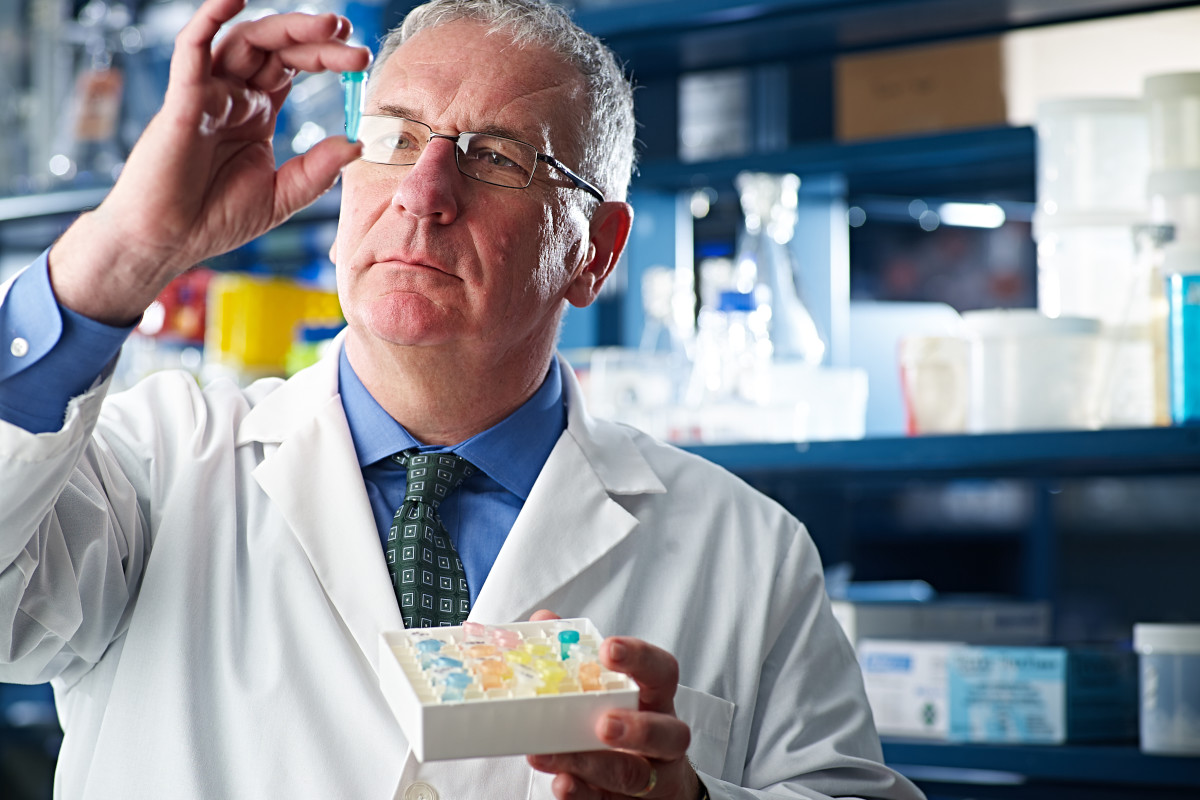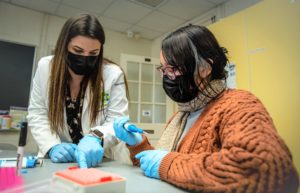The world’s most revolutionary gene editing technology is coming to college classrooms in Delaware, thanks to a $1 million National Science Foundation (NSF) grant awarded to the Delaware Technical Community College in partnership with the Gene Editing Institute of Christiana Care’s Helen F. Graham Cancer Center & Research Institute.
The NSF Advanced Technical Education (ATE) grant will support development of a gene editing curriculum for community college students. They will learn how to use leading-edge biomedical research tools that are transforming our understanding of human genetics and accelerating development of genetically based therapies for human diseases, including cancer. Only a handful of schools in the country teach gene editing techniques in the laboratory to undergraduates.
“The NSF award clearly places us at the forefront of gene editing education,” said Eric Kmiec, Ph.D., director of the Gene Editing Institute, who leads the grant along with biology and biotechnology instructor John McDowell, Ph.D., of Delaware Tech. “I believe we are among the first ever to transform a research tool used for years in our laboratory into a teaching tool that can be used in the undergraduate curriculum.”
The idea for the project grew from the educational missions of both partnering institutions, recognizing a disparity in the rate at which biomedical research techniques such as gene editing are developed and used, and the time it takes for this knowledge to be introduced into college curricula, especially at the undergraduate level.
An important project goal is to enable community college students in Delaware to acquire biomedical technology skills.
“We are developing a curriculum to teach mammalian tissue culture, yeast genetics, sequence analysis and bioinformatics tools, with an emphasis also on ethics, which we feel is a critical component of undergraduate education for science, technology, engineering and mathematics majors,” Dr. McDowell said. “In Delaware, the majority of the bioscience majors continue their education at the University of Delaware before entering the workforce. Learning mammalian tissue culture and gene editing techniques at the undergraduate level at Delaware Tech will position students who go on to study bioscience at UD to be more competitive for academic advancement and ultimately for employment upon graduation.”
ATE grants are awarded to community colleges to build and strengthen programs that train graduates to enter critical job markets. The gene editing grant will train research technicians in a variety of gene editing techniques, including working with human cells, for jobs in high-technology fields that drive our nation’s economy.
“The NSF grant demonstrates Dr. Kmiec’s commitment not only to cancer research but to educating the next generation of scientists,” said Nicholas Petrelli, M.D., FACS, Bank of America endowed medical director of the Helen F. Graham Cancer Center & Research Institute at Christiana Care.
The award also enables partners to explore the most effective ways to teach gene editing in the undergraduate laboratory as well as in workshops to train community college instructors. The curriculum they develop could serve as a model for other institutions to follow.
“Initially, we piloted the curriculum and the experimental exercise with community college instructors from around the country, as well as some student groups,” said Dr. Kmiec. “The feedback and results have been overwhelmingly positive, and we have numerous requests already to share the developed curriculum across the country.”



